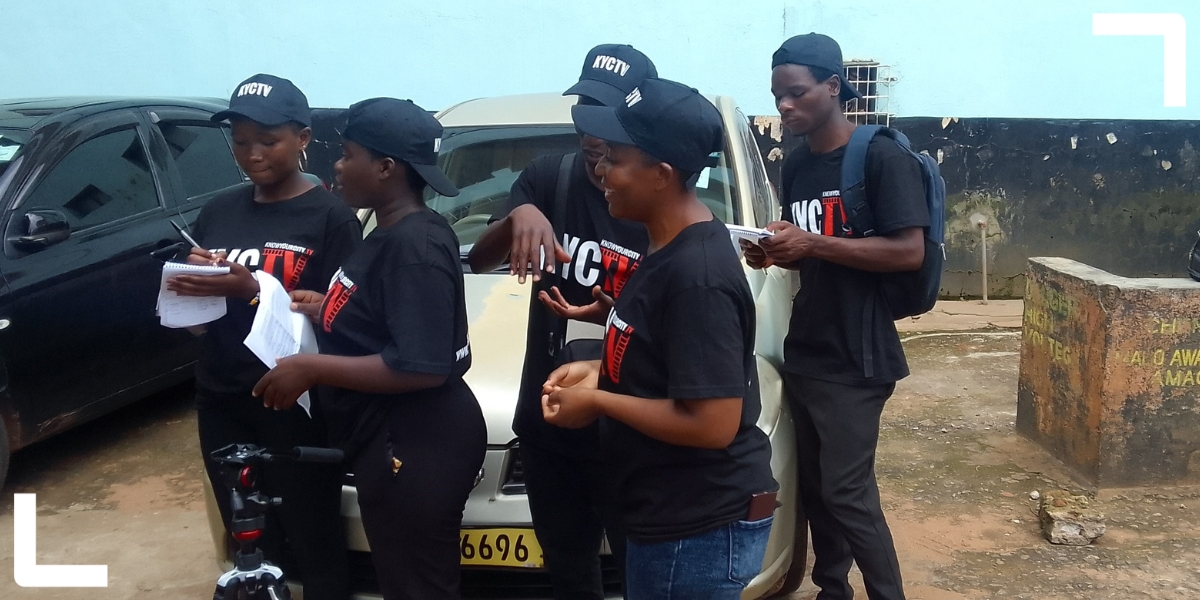Covid Collective
A multi-partner international group, the Covid Collective is working to provide evidence on the social dimensions of the pandemic to inform decisionmaking on Covid-19-related development challenges. Supported by the UK Foreign Commonwealth and Development Office (FCDO), the Covid Collective is based at the Institute of Development Studies (IDS).
As part of the Covid Collective, researchers within ACRC have been involved in projects looking at the impact of Covid-19 on communities and livelihoods in African cities.
By Stanley Dzimadzi, project manager at the Centre for Community Organisation and Development (CCODE)
Raising voices. Telling impact stories. One story at a time.
Recognising the critical role that media plays in promoting social and economic progress in low-income settlements, Lilongwe-based NGO, the Centre for Community Organisation and Development (CCODE), has taken the initiative to train young people in media production, equipping them with the skills and knowledge needed to create compelling content that can drive positive change.
As part of research being conducted under the Covid Collective – an FCDO-funded UK and global South research partnership – the training has brought together 26 young people from informal settlements in Lilongwe, providing an opportunity for them to participate in building more open, inclusive and resilient communities. This process is also being supported by Shack/Slum Dwellers International (SDI), as part of its wider #DignifiedUrbanLife campaign being conducted across multiple African cities.
Through the training programme, young people are being empowered to take an active role in their communities, tell the stories that matter and engage with critical issues affecting their lives. The aims are for these stories to be taken and embedded within an evidence-based approach to community advocacy campaigns. It is also expected that the training will create opportunities for personal and professional growth for young people, who are struggling to secure jobs or access capital to launch small-scale business.
“We are completely aware that the media has the ability to sway public opinion, affect legislative choices, and motivate behaviour. We can look forward to a brighter and more inclusive future for everybody by using the power of media for social good and involving young people in this endeavour.”
– Happiness Zidana, learning compliance and quality assurance officer, CCODE
The training targeted young people aged between 18 and 35. A total of 26 youths from informal settlements – comprising 12 women and 14 men – have been equipped with skills in videography, photography, graphic design, script writing and audio production. Through this programme, participants have not only built valuable skills in media production, but they have also gained a deeper understanding of the issues facing low-income communities and how they can use their talents to make a difference.
By providing young people with the tools and resources they need to tell their communities’ stories, the voices of those who are often overlooked and marginalised will be amplified. Moving forward, CCODE plans to mobilise more resources to reach out to more youths from the city and to expand the programme to other regions.
A version of this blog post originally appeared on the CCODE Malawi website and has been republished here with permission.
Header photo credit: Know Your City TV Malawi team
Note: This article presents the views of the author featured and does not necessarily represent the views of the African Cities Research Consortium as a whole.
The African Cities blog is licensed under Creative Commons Attribution-NonCommercial-NoDerivatives 4.0 International (CC BY-NC-ND 4.0), which means you are welcome to repost this content as long as you provide full credit and a link to this original post.


